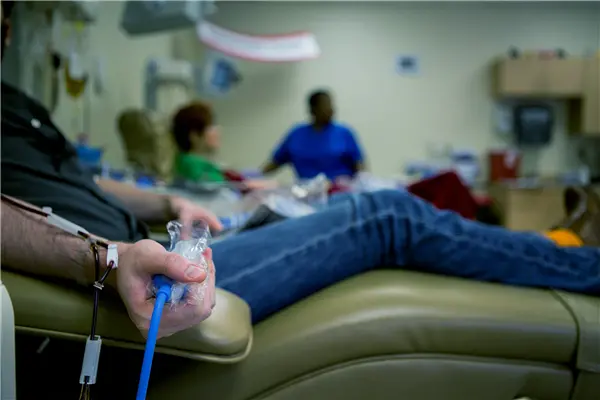In the aftermath of thePulse nightclub shootingin Orlando, Fla., 53 people were alive but wounded, many in desperate need of blood. Blood banks in the area put out a call for donors.
Gay men were ready to volunteer. Rumors even went around that blood centers in Orlando had relaxed a ban on donations from sexually active gay men.
But the rumors were false. The ban, imposed by theFood and Drug Administration, remains in place, infuriating some gay rights activists.
The agencydoes not permita man who has had sex with another man in the past year to donate blood. Loosening that restriction, officials say, would greatly increase the chances of contaminating the blood supply withH.I.V.and other sexually transmitted infections.
Many gay rights activists have protestedthe rule, arguing that demanding a year’s celibacy is unreasonable and that the ban perpetuates homophobic stigma. Mass murder in a gay nightclub has brought the debate to the fore.
Kelsey Louie, the chief executive officer of GMHC, the Gay Men’s Health Crisis, described the restriction as “adding insult to this nightmare” and called for “a blood donation policy that is inclusive and based on science, not stigma.”
The F.D.A. says its position is based on science and notes that its one-year waiting period is in line with policies in Britain andAustralia. (France dropped its ban on donations from gay men last year.)
The health authorities must balance the demand for blood against the inevitable consequences. Despite elaborate screening criteria and modern blood testing, F.D.A. officials note, every year some of the 3.5 million patients who receive transfusions are infected with various diseases.
For example, after the agency approved a test in 2007 forChagas’ disease, which can be lethal, it found more than 5,000 donors with it, not all of them first-time donors. Even with current testing, the agency estimates that about one donation in 1.5 million transmits H.I.V. to the recipient.
Lifting the restriction on sexually active gay men would raise the risk of H.I.V. infection to one per 375,000 donations, which the agency considers unacceptably high, Dr. Peter W. Marks, the deputy director of its Center for Biologics Evaluation and Research, said in December.
Donation screening policies are based on a combination of trust in human nature and hard science, both of which are fallible.
All communicable diseases have window periods during which the infection is so new that the virus, parasite or spirochete can be in the blood and actively replicating, but at such low levels that even the most sensitive tests cannot detect it.
For H.I.V., the window period is nine to 11 days after infection — but that assumes the most rigorous test and a typical patient. In some, it takes longer to detect.
Gay men over all are at higher risk forsyphilis,gonorrhea,hepatitis Candchlamydia. Gonorrhea and chlamydia are detectable in urine in about a week, according to theSTD Project, a website that fights stigmas surroundingsexually transmitted diseases.
But the window period for hepatitis C is four weeks at minimum, and the tests are more accurate at six to nine weeks. The shortest window for syphilis is one to two weeks, but detection is more likely after six weeks.
Donor-screening methods used by American blood banks presume that unpaid donors are unlikely to lie, since they experience some discomfort and typically receive nothing in return — except gratitude, a sense of satisfaction and sometimes movie tickets, although that practiceis controversial.
But it is well known that some donors do lie. Some gay men opposed to the F.D.A. policy have said in public meetings andonline forumsthat they have pretended be heterosexual in order to donate to help a friend.
It does not help that exclusion criteria are complex and often misunderstood.
Potential donors are asked long lists of detailed personal questions about injecting drugs, paying or being paid for sex, having syphilis, visiting countries withmalariaormad cow disease, and being tattooed in certain cities.
And the rules change. Currently, anyone who has recently visited one of 48 countries or territories where the Zika virus has been circulating, or who has had sex with a man who has recently traveled to one of them, is barred from donating for a month.
The F.D.A. has looked at ways to eliminate both misunderstandings and falsehoods. At blood banks in the United States, donors go down a checklist alone or answer questions from a technician.
In South Africa, interviewers try to ascertain how promiscuous each donor is, regardless of sexual orientation. In Italy, doctors do the screening. No method eliminates all high-risk donors, Dr. Marks said.
The F.D.A. has emphasized that many blood recipients are very vulnerable — they include not just victims of shootings or car accidents, but also premature infants, mothers hemorrhaging after birth, children withhemophilia, and organ transplant patients taking immune-suppression drugs.
Gay rights advocates argue that much more blood would be available if men in monogamous relationships, men who always usecondoms, or men who take the drug Truvada to prevent H.I.V. transmission were allowed to donate. At a minimum, the advocates argue, no sex in a month would be a more reasonable barrier.
Combined with testing, the risk of infections would be low enough to be acceptable — and considerably more acceptable during crises like the Orlando shooting, when the risk of dying from a gunshot wound greatly outweighs the risk of catching a treatable disease from a gay man who is eager to donate.
(THE NEW YORK TIMES)
 简体中文
简体中文

